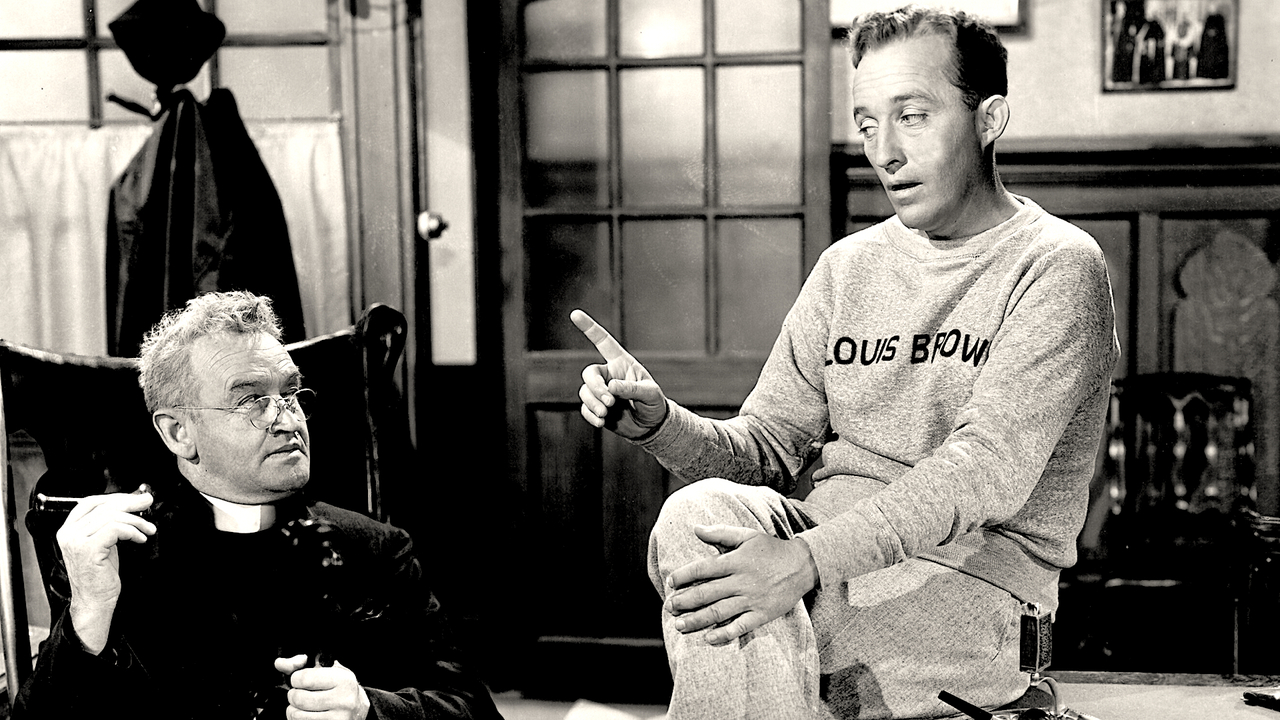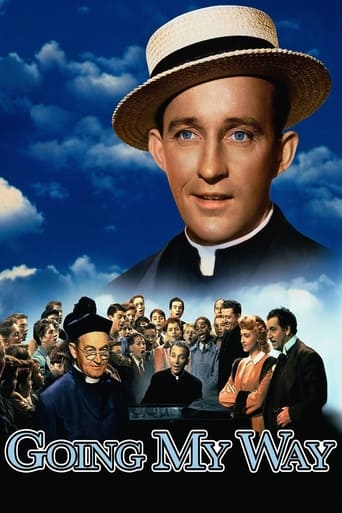

Wonderfully offbeat film!
... View MoreThe best films of this genre always show a path and provide a takeaway for being a better person.
... View MoreOne of those movie experiences that is so good it makes you realize you've been grading everything else on a curve.
... View MoreBy the time the dramatic fireworks start popping off, each one feels earned.
... View MoreThe film is not what I expected. It's very slow in spots, but that is not a criticism...the slowness allows us to absorb the characters and their situations. Crosby and Fitzgerald are truly excellent playing off each other in scenes and it's no wonder Paramount teamed them later in two other unrelated stories. I can also see why Fitzgerald was nominated as supporting actor and best actor, because he's a co-lead with Crosby and he's not really supporting Crosby in this story. In the reviews I have read, I've never seen anyone call this a religious musical but that's definitely what I would label it. It has more music than the sequel, and sometimes the plot comes to a halt so we can hear characters sing (not just Crosby other ones too, like the woman who gets her own scene performing from Bizet's 'Carmen'). It lends to the overall entertainment value, but it does take us away from the main story line, which is what's happening at the church. The last section choked me up more than I expected it would, where they bring the old Irish woman in to be reunited with her son. Leo McCarey and his cast were pouring it on, but it works-- because we see how one man (Father O'Malley) helped change all their lives in a very short amount of time. The choir boys, who seemed derivative of the Dead End kids; the elder priest; the priest at the nearby parish; the young girl and her new husband and father-in-law; the opera singer; and O'Malley himself-- they're all part of a kaleidoscope of faith.
... View MoreI finally made it to the end of this movie. I have tried for 50 years. I can forgive sappy. I enjoy lighthearted but this movie is simply stupid. It's funny how at least "The Bells of St. Mary's" had some dramatic conflict. Bing is okay, boring, and Barry is too cute for words. And this script has not a clever or unexpected scene. I understand that in the 1940s there was a need for some escapism, but there was "Meet Me in St. Louis" that year. And though I never cared for "Cover Girl" at least it moves. This is maybe the worst Best Picture winner, though "Gladiator" comes close. I am not Catholic, perhaps that is it. And I am also not an atheist though this movie seriously makes me reconsider that.
... View MoreYouthful Father Chuck O'Malley led a colorful life of sports, song, and romance before joining the Roman Catholic clergy, but his level gaze and twinkling eyes make it clear that he knows he made the right choice. After joining a parish, O'Malley's worldly knowledge helps him connect with a gang of kids looking for direction and handle the business details of the church-building fund, winning over his aging, conventional superior, Father Fitzgibbon.So, this is a role Bing Crosby had a few times... and it seems odd, a man who liked to golf with gangsters playing a Catholic priest. But maybe that makes sense, especially for the kind of priest he plays. He sees the value in helping the downtrodden and "lesser" members of society. That is a true hero.This also happens to be a very musical film, again not surprising given Bing's history. But in it we also mix street kids singing, an opera and even a classic Irish song.
... View MoreAnother great movie from Bing Crosby. Here a worldly man who has chosen to become a Catholic priest comes to a church that is failing and tries to turn it around. The resident, older priest played very capably by the great Barry Fitzgerald, is at first very reluctant to embrace the newer ideas that the younger priest brings up. He does come around when the church is under threat of closure. They eventually save the church with the help of some street kids that Bing turns into an excellent church choir. I also like when Bing takes the young aspiring women under his wing so she does not end up on the mean streets. Overall this is an extremely well done and acted movie.
... View More